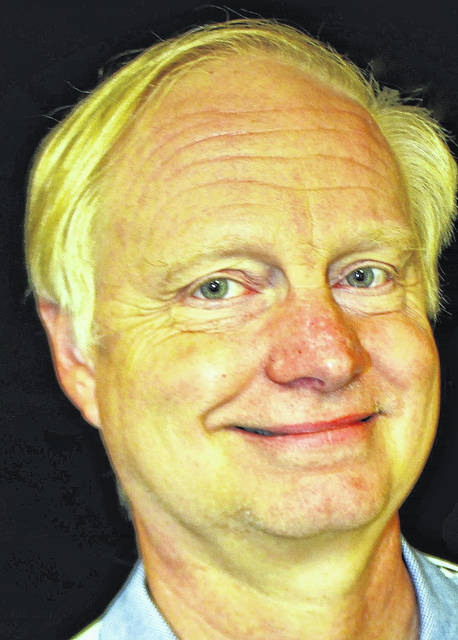
As a book project expressly tied to Wilmington College’s sesquicentennial in higher education, the newly published “Wilmington College: Celebrating 150 Years” presents a historical narrative plus lots of side stories and photos throughout its 200 glossy pages. It does a very fine job of telling and illustrating the college’s century-and-a-half-long story.
Local publishing house Orange Frazer Press produced the attractive, enjoyable book in partnership with the college that’s just a few blocks east of where Orange Frazer staffers ply their trade.
As a WC alumnus, going through the book has furthered my appreciation for the college’s place in American higher education, and also enlarged my hopes for its future.
This small, church-related college is a liberal arts institution that makes it a point to be career-oriented as well. What then is a Wilmington College graduate envisioned to look like? The school describes its graduate as a young person prepared “for a life of service and success.”
It just so happens I recently read some things that Quaker author D. Elton Trueblood wrote about Quaker colleges in the United States:
“It is no accident that so often the most impressive departments in the Quaker colleges are the departments of science,” he wrote.
Of Quaker livelihoods historically Trueblood observed, “The Quaker penchant for the natural sciences has been frequently noted.” And in 1966 when he wrote this he specified that “though Quaker pioneers of science have worked in many fields, the most characteristic field is that of the various branches of biology and botany.”
I bring this up because in surveying Wilmington College’s history as chronicled in the new sesquicentennial book, an ongoing focus on science at the school is evident.
A side story in the book is titled “The Pillars of Bailey Hall: Trio of Legendary Science Profs Served WC for 129 Years”. W. Russell Pyle, Frank O. Hazard and Oscar F. Boyd were known to WC students from the late ’20s through the early ’60s as the “Big Three of Science”. Their teaching prowess is a theme of the feature piece about them.
Additionally, the book notes the campus’ two newest facilities, the Center for the Sciences & Agriculture and the Center for Sport Sciences, are “expressly designed to enhance the college’s reputation for academic excellence, while highlighting the areas of agriculture, the physical and life sciences, and sport sciences.”
In the area of allied health sciences, the college is launching a graduate-level program in January 2022: The Master of Science in Occupational Therapy. In addition, this fall WC will put in motion its Master of Science in Athletic Training program.
Given the college’s longtime and well-regarded teacher education program, it’s natural to wonder whether the college’s strengths in teacher training and in the sciences (perhaps especially the life and health sciences) could be knitted such that Wilmington College would be well-known, at least in academic circles, for producing K-12 science teachers who are especially outstanding.
For all I know, WC may already have this reputation when it comes to graduating science teachers. The thinking here is by having it as an intentional goal, and given the national push for STEM (science, technology, engineering and math) in teaching the young, hatching remarkable science teachers could be a niche and point of pride for our town’s college.
Reach Gary Huffenberger at 937-556-5768.


